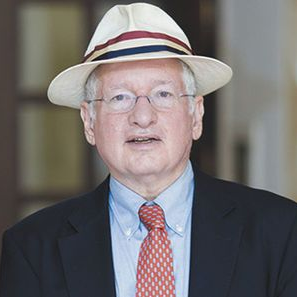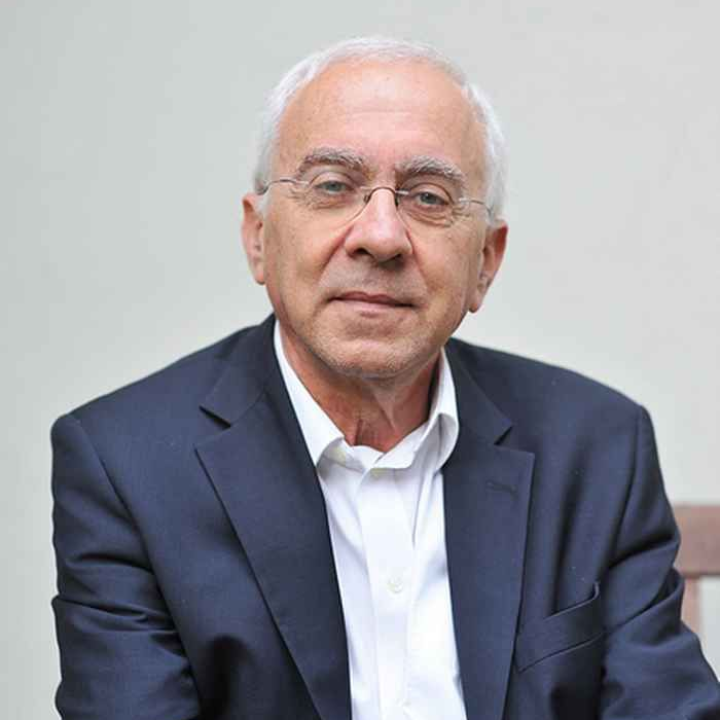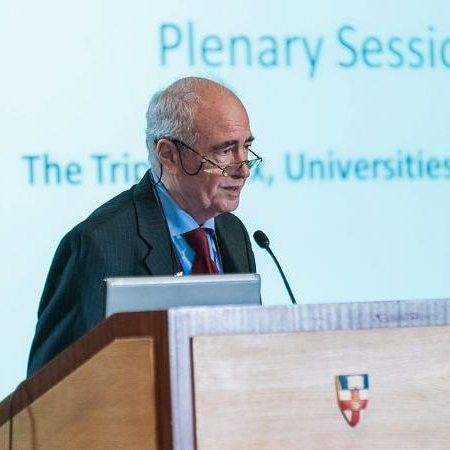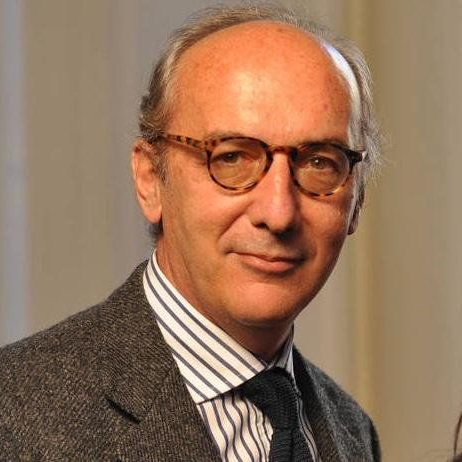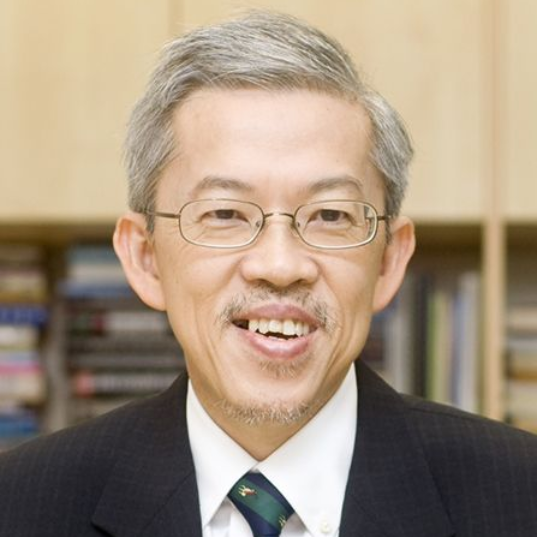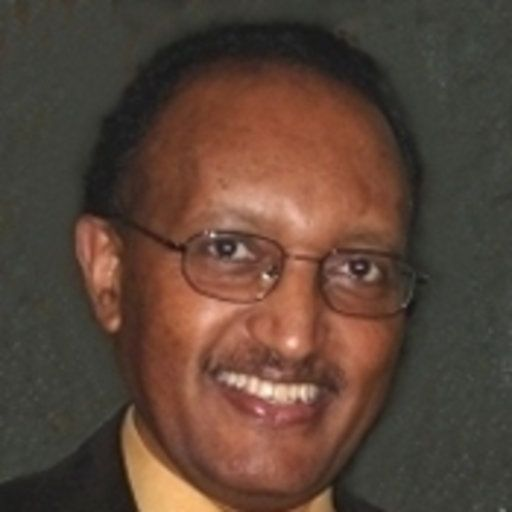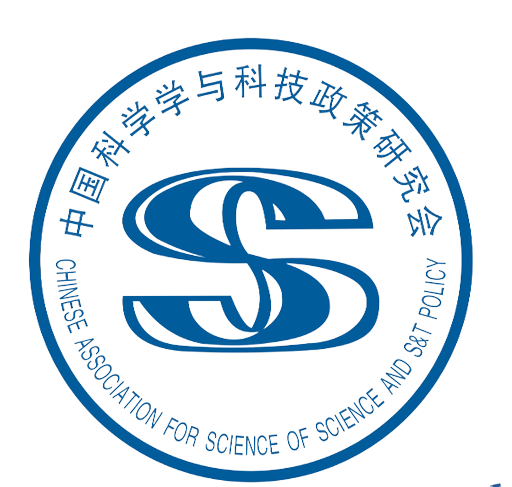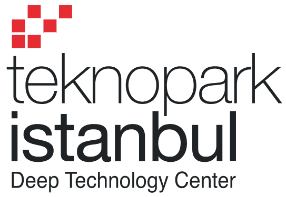Founders
Universities should reshape their function for the incoming century. Not only teaching and research but generation of innovation and companies in collaboration with the business sector and government according the changing demand from society and market. From this premise the Triple Helix Association was born in Turin in 2009 with the goal of transforming the mission of academic world and of making aware the government of their crucial role to promote the academy-industry interaction.
Henry Etzkowitz
Prof. Etzkowitz is a scholar of international reputation in innovation studies as the originator of the “Triple Helix”and “Entrepreneurial University” concepts. He is founding President of the Triple Helix Association (a unique international network of several hundred scholars and practitioners of university-industry-government relations) and founding editor of its journal. Henry is currently CEO of a 501c3 think tank, International Triple Helix Institute in Silicon Valley. He was Visiting Faculty Fellow at the Clayman Institute for Gender Research, Senior Researcher at the H-STAR Institute and Lecturer in STS at Stanford University. Prior to coming to Stanford, he held the Chair in Management of Innovation, Creativity and Enterprise at Newcastle University Business School in the UK and served as Visiting Professor in the Department of Technology and Society at Stony Brook University and Birkbeck, University of London. He previously taught at SUNY (Purchase College) and Washington University, St. Louis.
Etzkowitz is author of MIT and the Rise of Entrepreneurial Science (Routledge, 2002); co-author of Athena Unbound: The Advancement of Women in Science and Technology (Cambridge, 2000); Triple Helix: University-Industry-Government Innovation and Entrepreneurship (Routledge, 2008, 2017). Articles, individually and with colleagues, include: Citizen Driven Innovation, stem cell scientists, patient advocates and financial innovators in the Making of the California Institute of Regenerative Medicine (Prometheus, 2021) Gender dynamics in science and technology (Brussels Economic Review, 2008); Interdisciplinary Organization as a basic academic unit, (Industry and Higher Education, 2021); Licensing Life: the evolution of Stanford University’s Technology Transfer Practice (Technology Forecasting and Social Change, 2021).
After his BA in History at the University of Chicago, he served as a Peace Corps Volunteer Teacher at the Bornu Secondary School in Northern Nigeria. His PhD in Sociology, Graduate Faculty, New School for Social Research with a dissertation on a social entrepreneurship project that also bcaem the subject of a co-authored Ghetto Crisis (Little, Brown, 1969). His participation in a photovoltaics start-up led him into the field of science and technology policy, post doctoral work with Robert K. Merton at Columbia University and a series of grants (one million US) from the US National Science foundation on university-industry relations and women in science, followed up with a series of European Union funded research projects. Sweden’s Linkoping University awarded him an honorary doctorate in engineering.
Loet Leydesdorff
(In memoriam)
Loet Leydesdorff (Ph.D. Sociology, M.A. Philosophy, and M.Sc. Biochemistry) was Professor emeritus at the Amsterdam School of Communications Research (ASCoR) of the University of Amsterdam.
He was Associate Faculty at the Science and Technology Policy Research Unit (SPRU) of the University of Sussex, Visiting Professor of the Institute of Scientific and Technical Information of China (ISTIC) in Beijing, Guest Professor at Zhejiang University in Hangzhou, and Visiting Fellow at the School of Management, Birkbeck, University of London.
He has published extensively in systems theory, social network analysis, scientometrics, and the sociology of innovation. With Henry Etzkowitz, he initiated a series of workshops, conferences, and special issues about the Triple Helix of University-Industry-Government Relations. He received the Derek de Solla Price Award for Scientometrics and Informetrics in 2003 and held “The City of Lausanne” Honor Chair at the School of Economics, Université de Lausanne, in 2005. In 2007, he was Vice-President of the 8th International Conference on Computing Anticipatory Systems (CASYS’07, Liège). Since 2014, lists him as a highly-cited author at Clarivate.
José Manoel Carvalho de Mello
José Manoel Carvalho de Mello is Technical Advisor to the Technology Directorate of the Carlos Chagas Filho Foundation for Research Support of the State of Rio de Janeiro (FAPERJ). He earned a degree in Chemical Engineering (1965) from the Federal University of Rio de Janeiro (National School of Chemistry) with a specialization in Engineering Economics (1967) from the same university. He holds an M.Sc. in Production Engineering (1969) from COPPE/UFRJ and a Ph.D. in Production Engineering (1973) from the University of Birmingham, UK.
He was a Professor in the Graduate Program in Production Engineering, Associate Researcher at the Center for Studies on Innovation, Knowledge and Work (NEICT), and Advisor to the Innovation Agency at Fluminense Federal University (2003–2017).
He was a Researcher at FAPERJ’s Center for Studies in Public Policies for Innovation (2015–2017). He was an Associate Professor in the Production Engineering Program at COPPE/UFRJ (1969–2003).
He has been a member of the Scientific and Technical Committee of the Centre of Science and Technology Policy (CeS&T) of the Fondazione Rosseli, Italy; a member of the International Committee of the International Triple Helix Conferences (2000–2013); a member of INNRED, the Network of Innovation Support Centers, Subprogram XVI of CYTED (2002–2006); a reviewer for the CYTED Program; and an editorial board member of the journals Journal of Technology Management & Sustainable Development and International Journal of Technology and Globalization. He was a member and leader of the Brazilian team in the UNIDEV Project – Developing Universities (2005–2017).
He served as a Research Fellow at the Management Centre, University of Bradford, UK (1974); completed postdoctoral work at the Centre Science, Technologie et Société, CNAM, Paris (1984–1985); was a Researcher at the Centre de Sociologie des Arts, EHESS, Paris (1987); undertook postdoctoral work as a Visiting Scholar at the Science Policy Institute, State University of New York, Purchase College (1997–1998); and was a Visiting Professor at the Research Policy Institute, Lund University, Sweden (2011).
Riccardo Viale
Riccardo Viale is an Italian cognitive scientist, epistemologist and behavioral economist known for his studies on bounded rationality and the application of cognitive sciences to methodology and epistemology of social science, economic theory, public administration and public policies. Since 2001, full professor of cognitive economics and behavioral sciences at the University of Milan Bicocca and at LUISS, he has been a fellow and visiting scholar at Oxford University; Luigi Bocconi University, Milan; University of California, San Diego; Rice University, Houston; Columbia University, New York; Max Planck Institute for Human Development, Berlin; Chinese Academy of Science, Beijing.
Riccardo Viale graduated in Medicine and Surgery and specialized in Psychiatry at the University of Turin. After his doctoral studies from 1985 to 1988 at Oxford in philosophy of science, he became a researcher at the CNR, professor of Logic and Epistemology at the Bocconi University of Milan (from 1988 to 1996), associate professor of sociology of science at the State University of Milan (from 1992 to 2001), full professor of Social Science Methodology and professor of cognitive economics and behavioral sciences (from 2001 to 2023) at the University of Milan Bicocca; permanent professor of behavioral economics at the National School of Administration in Rome (from 2004 to 2016); Since 2006, he has taught behavioral economics at the Department of Political Sciences at LUISS in Rome. He is currently president of Behavioral Insights Bicocca and scientific director of the Master “Behavioral design for public utilities and services” of the University of Milan Bicocca and the Polytechnic of Milan. He is co-editor in chief of Mind & Society- Adaptive Behaviors under Risk and Uncertainty.
From 1982 to today he has been a fellow, visiting scholar and lecturer at Oxford University; Interuniversity Center of Dubrovnik; University of Aix en Provence; Rice University, Department of Psychology, Houston; University of Freiburg; Federal University of Rio de Janeiro; University of California, Department of Psychology, Santa Barbara; University of Ho Chi Min City, Vietnam; Universidade Federal Fluminense of Niteroi, Brazil; Columbia University, Department of Psychology; Harvard University, Behavioral Insights Group; University of Pennsylvania, Laboratory of Behavioral Ethics, Philadelphia; Max Planck Institute for Human Development, Berlin; Ecole Normale Superieur, Department de Science Cognitive, Paris; New York University, Department of Psychology; OECD, Paris; Universidad Complutense de Madrid; Sorbonne University, Paris; College de France, Paris; Chinese Academy of Science, Institute of Psychology, Beijing; Federal University of Pernambuco, Recife, Brazil; Facultade de Economia, Università de l’Avana, Cuba.
Riccardo Viale is the author of many books including 2022 Nudging, Cambridge: The Mit Press; 2021 Handbook of Bounded Rationality, London: Routledge; 2018 Beyond Nudge. Freedom of Choice, Happiness and Behavior, (with a foreword by Cass Susnstein) Bologna: Il Mulino; 2013 Methodological Cognitivism, Vol. 2 Cognition, Science, and Innovation, Springer; 2012 Methodological Cognitivism, Vol 1 Mind, Rationality and Society, Springer; 1992 (reprinted in 2008) Economics, Bounded Rationality and the Cognitive Revolution (with H. Simon, M. Egidi and R. Marris), Brookfield: Edward Elgar; 1991 Method and society in science, Milan: Franco Angeli.
Riccardo Viale has held various institutional positions in Italy and abroad. Among others, in 1992 he was coordinator of the Committee on Research and Innovation of the President of the Council of Ministers; in 1990 collaborator of Jacques Delors’ Cellule de Prospective at the European Commission; from 2010 to 2014 director of the Italian Cultural Institute in New York; since 2020 scientific head of the Behavioral Analysis team of the Department of Public Function of the Presidency of the Council of Ministers. Finally he was Founder and President of the Rosselli Foundation of Turin (from 1988 to 2015); Founder and Secretary General of the Herbert Simon Society (from 2006 to today); founder, general manager (from 2001 to 2010) and President of scientific committee (from 2018 to today) of Fondazione Cotec per l’innovazione.
Poh Kam Wong
WONG Poh Kam is Professor at the NUS Business School where he teaches entrepreneurship and innovation strategy with a special focus on Asia. He is also Professor (by courtesy) at the Lee Kuan Yew School of Public Policy and the Faculty of Engineering at NUS. He obtained two BSc.’s, an MSc. and a Ph.D. from MIT. He has published extensively in leading international refereed journals on entrepreneurship and innovation such as Organization Science, Information Systems Research, Research Policy, Journal of Business Venturing, Journal of Management, Entrepreneurship Theory & Practice, IEEE Trans Engineering Management, Scientometrics, Technovation and Small Business Economics. His publications have attracted close to 1800 citations in Web of Science (H-Index 20) and over 7000 in Google Scholars (H-Index 37) (as of end Oct 2015). He has consulted widely for international agencies such as the World Bank, OECD and Asian Development Bank, various government agencies in Singapore such as A*STAR, Intellectual Property Office of Singapore (IPOS), Economic Development Board (EDB) and National Research Foundation (NRF) of Singapore, and many private corporations in Asia. He was a Fulbright Visiting Scholar at U.C. Berkeley, a visiting scholar at Stanford University, and a Senior Visiting Scholar at Oxford University.
In addition to his academic position, he is also concurrently the Director of NUS Entrepreneurship Centre, where he spearheads the university’s experiential entrepreneurship education programs and oversees the NUS Enterprise Incubator (NEI), which provides incubation space, seed funding, mentorship and network connections to early stage investors for start-ups by NUS students, professors and alumni. He introduced a Technopreneurship Minor program open to all undergraduate students on campus, and played a pivotal role in developing the NUS Overseas College (NOC) program, a highly regarded experiential entrepreneurship educational program which sends selected NUS students to do a one year internship in early stage startups in leading entrepreneurial hubs in the world (Silicon Valley, New York City, Shanghai, Beijing, Israel, and Stockholm) while taking entrepreneurship courses at partner universities in these locations (Stanford, NYUTech, Fudan, Tsinghua, KTH etc). He initiated StartUp@Singapore, the largest annual business plan competition in Singapore, in 1999 and the DBS-NUS Social Venture Challenge Asia, the largest annual social entrepreneurship competition in Asia, in 2013. He also launched the LeanLaunchpad@Singapore program, an adaptation of the US NSF iCorp program, in Singapore in 2013 to educate professors and graduate students on customer discovery/market validation for commercializing their inventions.
An entrepreneur who co-founded three companies prior to joining academia, he has been an active angel investor with investment in over a dozen high tech start-ups in Singapore, Silicon Valley, China and India. He was the founding chairman of Business Angel Network (Southeast Asia) and Asia Business Angels Forum (ABAF). He received the Public Administration Medal (Silver) Award from the Singapore Government in 2013 for his contribution to education in Singapore, and the “Entrepreneur for the World” Award (Education Category) from the World Entrepreneurship Forum in 2015.
Girma Zawdie
(In memoriam)
Girma Zawdie was a senior lecturer in science, technology and innovation management and policy and international development at the University of Strathclyde. He has several years of teaching and research experience. Areas of his research interest included issues in triple helix innovation systems, circular economy and sustainability.

